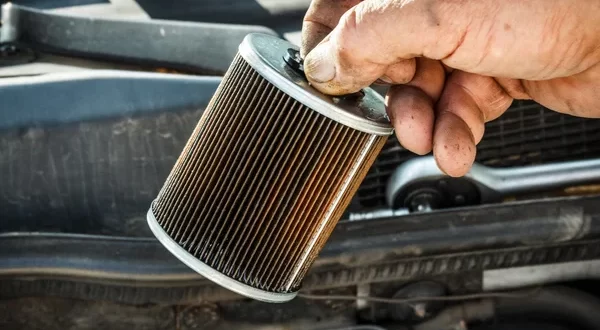As a car owner, dealing with fuel system problems is quite irritating as well as costly. Fuel system issues can make your vehicle work ineffectively, consume more fuels while proving to be unsafe. In this blog today, we will be discussing a few of the common fuel system problems, tell you how to diagnose them and effective ways to fix those problems.
COMMON FUEL SYSTEM PROBLEMS
Clogged Fuel Filter
Fuel flow to the engine may be restricted by a blocked fuel filter, which can cause poor acceleration and engine stalling. Having trouble starting the engine and losing power while driving are among the symptoms.
Faulty Fuel Pump
Misfires, sputtering, and stalling of the engine can be caused by a faulty fuel pump. Additionally, you might hear a whining sound coming from from the fuel tank.
Dirty Fuel Injectors
Lack of power, aggressive idling, and poor fuel economy can all be caused by dirty fuel injectors. Additional symptoms like increased exhaust emissions and engine delay could occur.
Vapor Lock
Particularly in hot weather, vapor lock is the result of fuel in the carburetor or lines turning to vapor, which disrupts fuel flow and causes the engine to stall.
DIAGNOSING FUEL SYSTEM PROBLEMS
It is important to accurately identify fuel system problems before undertaking any repairs. To assist you in determining the issue’s primary cause, follow these steps:
Check Engine Light
To obtain the error codes if the check engine light is on, use an OBD-II scanner. These codes can offer important information about the particular fuel system part that isn’t working properly. You can reach out to a diagnostic technician here https://www.spotdem.com/find-an-expert-mechanic-near-me/ to help you run a check.
Fuel Pressure Test
To determine the pressure inside the fuel system, use a fuel pressure gauge. A malfunctioning fuel pump or a clogged fuel filter may be the cause of low fuel pressure. A mechanic can help you with this.
Visual Inspection
Examine the fuel injectors, fuel filter, and fuel lines for any indications of obstructions, leaks, or damage. In addition, look for any debris or corrosion in the fuel tank that can contaminate the fuel.
FIXING FUEL SYSTEM PROBLEMS
After you’ve identified the problem, it’s time to fix it and get your car’s fuel system back in working order. The following procedures will address typical fuel system issues:
Replace the Fuel Filter
To get the engine’s fuel flow back to normal, replace the clogged fuel filter with a new one.
Replace the Fuel Pump
To guarantee that the engine receives fuel continuously, a faulty fuel pump must be replaced.
Clean or Replace Fuel Injectors
To get rid of any collected deposits and get the fuel atomization back to normal, use a fuel injector cleaner or have the fuel injectors professionally serviced. You can order genuine injector cleaners here: https://www.spotdem.com/product-category/fuel-additives/
Address Vapor Lock
Make sure the fuel lines are adequately insulated and protected from extreme heat to avoid vapor lock. If required, consider applying an insulating wrap or heat shield.
Understanding the common fuel system problems, diagnosing them in the proper manner, and taking up the right steps to correct will help the fuel system of your car run as smoothly as well as efficiently.
Regular maintenance and prompt addressing fuel system issues will save you from expensive repairs. If for any reason you cannot diagnose a malfunction connected to the fuel system, and then without hesitation seek the help of a professional mechanic. Remember, healthy fuel system is essential for your car to perform well long for a long period of time.
Click here: Find a professional mechanic assistance near you
 Spot Dem Everything About Cars
Spot Dem Everything About Cars



